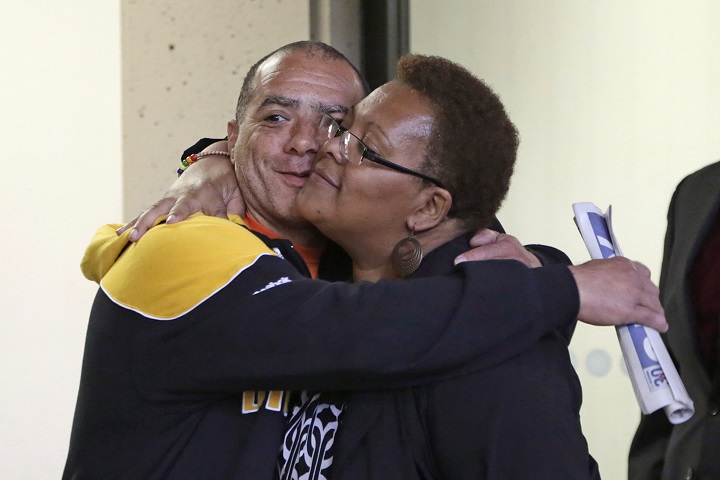HALIFAX – The Nova Scotia government knew about the alleged treatment of children at a Halifax orphanage who claim they were sexually abused, beaten and deprived of food, but did nothing to stop it, a lawyer for the former residents charged Tuesday in provincial Supreme Court.

About 155 ex-residents of the Nova Scotia Home for Colored Children are seeking to have their proposed lawsuit against the province certified by the court as a class action.
The lawsuit alleges residents suffered years of sexual, physical and psychological abuse by staff at the home over a 50-year period up until the 1980s.
“We say the province knew what was going on at the home and the province ignored it,” Mike Dull, co-counsel for the residents, told the court Tuesday on the second day of a certification hearing.
A lawyer for the government spent Monday asking the judge to dismiss portions of selected affidavits filed as part of the proposed lawsuit because he said they contain speculation or hearsay.
But Dull said the affidavits, most of which were filed by alleged victims, are fair and honest accounts of decades-old memories.
In one instance, he argued that details of a conversation between a former resident and a staff member shouldn’t be dismissed even though the woman couldn’t recall whom she spoke with.
“We’re talking about an event over 30 years ago,” Dull told the court Tuesday.
He also defended one woman’s use of the term “malnutrition” in her affidavit to describe her experience at the home.
The lawyer for the government, Peter McVey, had previously argued that the term was akin to a medical diagnosis. He suggested she should have said she was hungry.
Dull rejected that argument.
“I would argue that the state of malnutrition is similar to the state of intoxication,” he said. “You don’t need to be a doctor to say you feel intoxicated, you don’t need to be a doctor to say you’re malnourished.
“Malnutrition is different than saying you’re hungry.”
Dull did not object to all changes requested by the government, including one pertaining to an affidavit by Jane Earle, a former executive director of the home.
He said Earle was entitled to say the home offered low wages and poor training. But Dull agreed to strike Earle’s comment that those factors led to a staff that was unable to detect child predators.
During his rebuttal, McVey stressed that in many instances, the government is seeking to have individual words ruled inadmissible, not entire affidavits. He said the government has only asked for one affidavit – by child welfare expert Sandra Scarth – to be thrown out entirely.
He criticized Dull for reading entire paragraphs from affidavits into the court record, which he said could be misleading to those following the matter in court or on a live webcast, including the home’s former residents.
“It does them a disservice,” McVey said.
Judge Arthur LeBlanc was expected to render his decision on the admissibility of the affidavits Wednesday. That would clear the way for arguments to begin on the proposed certification Thursday.
The Nova Scotia Home for Colored Children opened in 1921, but its role has evolved over the years, eventually expanding its services to promote the health and well-being of children and families within Nova Scotia’s black community.

Get daily National news
In December, Halifax police and the RCMP announced they would not be laying criminal charges in the case after concluding there was not enough evidence to support the abuse allegations.
Premier Darrell Dexter promised in a throne speech earlier this year that his government would set up an independent panel to review the accusations.
Read the affidavits below:
Affidavit: Tracey Dorrington-Skinner
Affidavit: Harriet Johnson
Affidavit: June Elwin
Affidavit: Harold Middleton
Affidavit: Stacey Beals
Affidavit: Shirley Melanson
Affidavit: Deanna Smith
Affidavit: Garnet Smith
Affidavit: Star-Ann Smith
Affidavit: Krista Borden
Affidavit:Jane Earle, former Executive Director of the Nova Scotia Home for Colored Children
Affidavit and exhibits: Michael Dull, co-counsel for the residents
Affidavit of Sandra Scarth






Comments